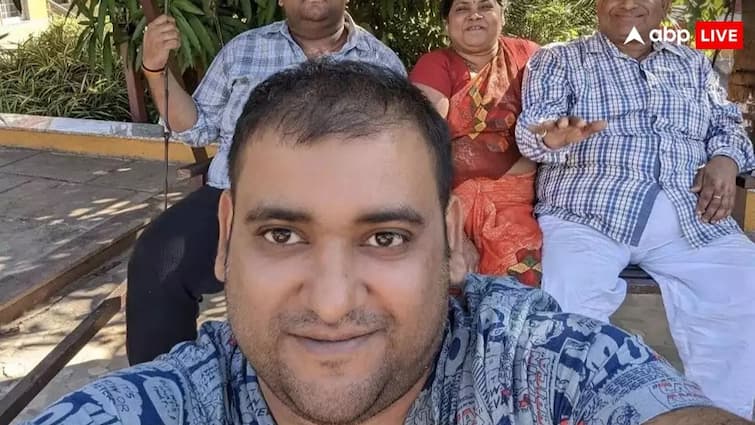The Department of School Education & Literacy (DoSE&L), Ministry of Education, hosted a two-day Strengthening Teaching-Learning and Results for States (STARS) knowledge sharing workshop in Bhopal, Madhya Pradesh, from September 30 to October 1.
The workshop, focusing on school-to-work transition and strengthening the assessment system, was inaugurated by Uday Pratap Singh, State Minister of Transport and School Education. The workshop emphasized the Ministry of Education's commitment to fostering a robust educational ecosystem that prepares students for the challenges of the future workforce.
Also read: BITS Pilani and Impactsure Technologies collaborate for pioneering AI research
Singh, during his inaugural speech, said that the National Education Policy 2020 emphasizes the overall development of children. He also mentioned that the STARS project will play a crucial role in the transformation of the education system.
On Day 1 of the workshop, Sanjay Kumar, Secretary, DoSE&L provided essential context for the workshop, emphasizing the importance of bridging the gap between education and employment. Vipin Kumar, Additional Secretary, DoSE&L, welcomed all the participants in the workshop, providing great scope for learning. Dr Sanjay Goyal, Secretary, Department of Education, Madhya Pradesh, highlighted the importance of this workshop and cross-learning that can happen between the states through such platforms.
Also read: UP Cabinet gives nod to self-employment scheme for youth, setting up two private universities
The first panel discussion, moderated by Vipin Kumar, focused on the role of policy frameworks such as National Education Policy 2020, National Curriculum Framework (NCF), and National Credit Framework (NCrF) in school-to-work transitions. Discussions highlighted the integration of skill education into school curricula, the role of the NCF in fostering multidisciplinary learning and adaptability, and the importance of continuous evaluation and updating of curricula to match industry standards. The panel also addressed the promotion of real-world exposure through internships and apprenticeships under NEP and NCrF, the flexibility of learning pathways through NCrF, and the role of policies in bridging the gap between academia and industry.
Dinesh Prasad Saklani, Director, NCERT, in his presentation that departments need to work in integration and not in silos, with a common vision of strengthening the education system for our future generations. He also highlighted the need to align the curriculum with the industry demands to make school-to-work transition more seamless for young learners.
Also read: Two boys' hostels of Gauhati University temporarily shut down following clashes
A panel discussion on psychometric analysis and career counseling in skill education was moderated by Usha Titus, Managing Director, Additional Skill Acquisition Programme, Kerala. The discussion centered on assessing the effectiveness of career counseling programs using data from psychometric assessments, evolving trends in career counseling, and the challenges faced in preparing students for the future workforce.
Supriya AR, SPD of Kerala, discussed the partnerships with industry and work-based learning opportunities, leading to a panel discussion moderated by Rajesh Sharma, SPD, Himachal Pradesh. The panel discussed building effective partnerships between schools and industry bodies, collaborating on programs, internships, and job placement efforts, and identifying best practices to enhance work-based learning.
On the second day, in his opening remarks, Vipin Kumar, Additional Secretary of DoSE&L, discussed the current effectiveness and need for improvement in assessment models. Smt. Idzes Angmo Kundan, Principal Secretary, Maharashtra, delivered an insightful presentation on Psychometric Analysis and Career Counseling in Skill Education, where she highlighted the 3 P approach to career choice, i.e., Personal interest, Parental approach, and Possible Opportunities.
Dinesh Singh Kushwaha, Director, Public Instructions, Madhya Pradesh, made a compelling presentation on enhancing student outcome through strengthening assessment systems for future education. Jonas Bertling, Director of Educational Testing Service (ETS), discussed innovations in educational assessment. Maj. Vishal Sharma, Secretary, Himachal Pradesh Board for Secondary Education, highlighted innovative assessment practices that empower students for future education.
A presentation on VSK implementation in the state of Chhattisgarh was presented by Pardeshi Siddharth Komal, Principal Secretary, Chhattisgarh. He moderated a panel discussion on VSK Modes and Integrating Assessment Outcomes for Informed Decision-Making. The panel provided insights on objectives and components of VSK including data collection and analysis, and strategies for integrating assessment outcomes with learning objectives.
Ashish Modi, Director, Secondary Education, Rajasthan, made a compelling presentation on the importance of an assessment cell. The presentation was followed by a panel discussion on the theme of Strengthening Assessment Cells in states, which was moderated by MK Shanmuga Sundaram, Principal Secretary – Basic Education, Uttar Pradesh. The panel discussed the role of assessment cells in enhancing educational effectiveness, innovative practices adopted by these cells and the challenges faced along with strategies for mitigation.
The workshop concluded with key takeaways summarized by Vipin Kumar. He underlined strategies for enhancing assessment systems and school-to-work transitions.




